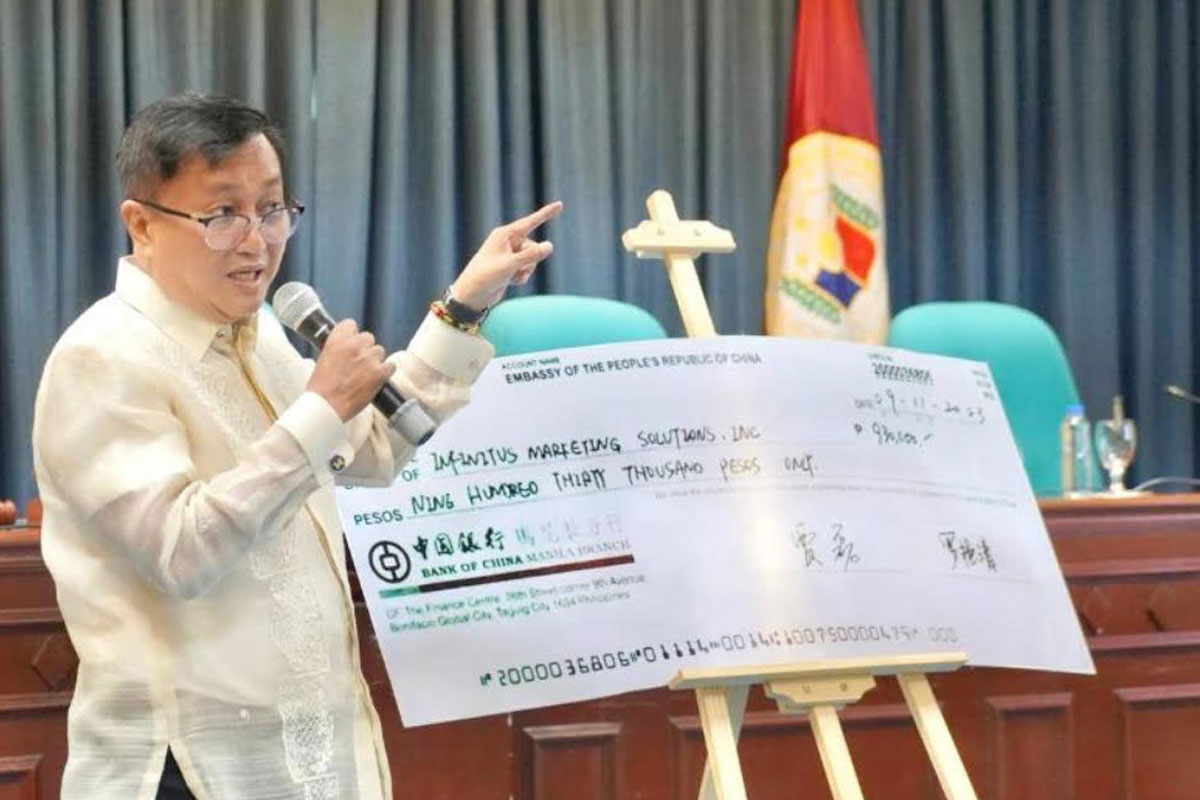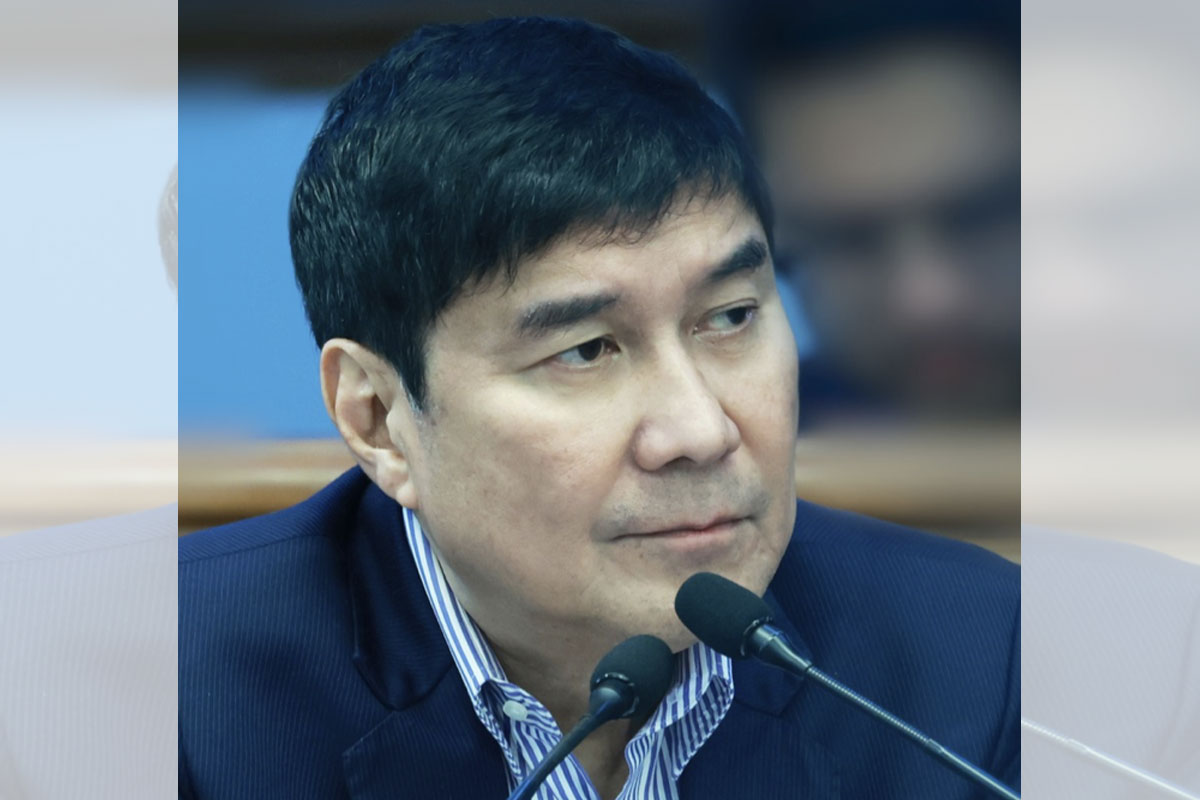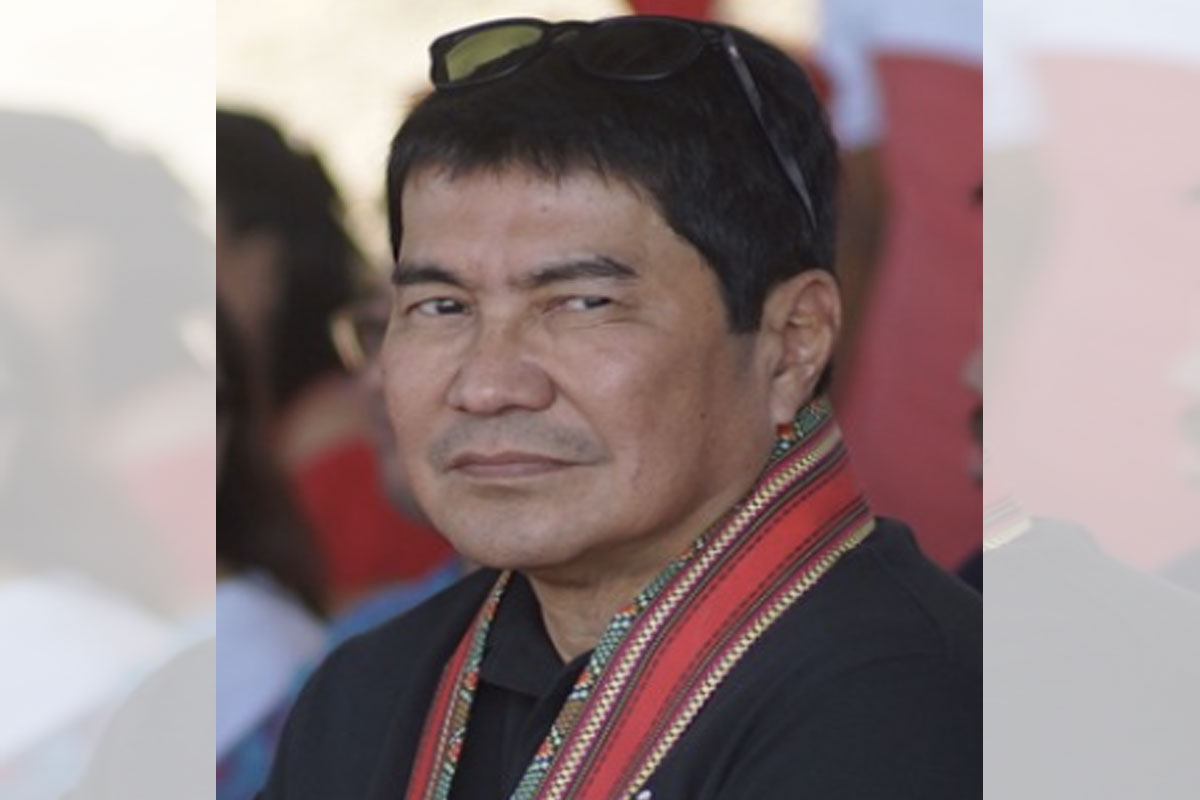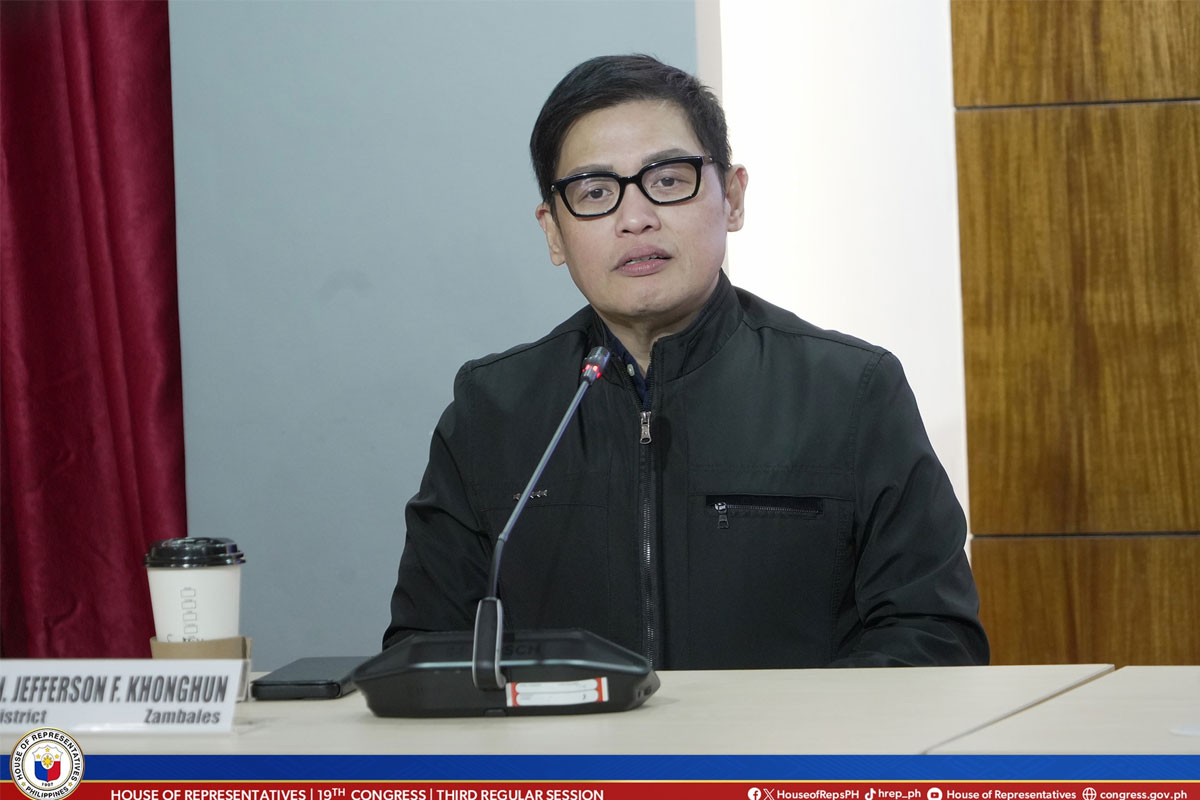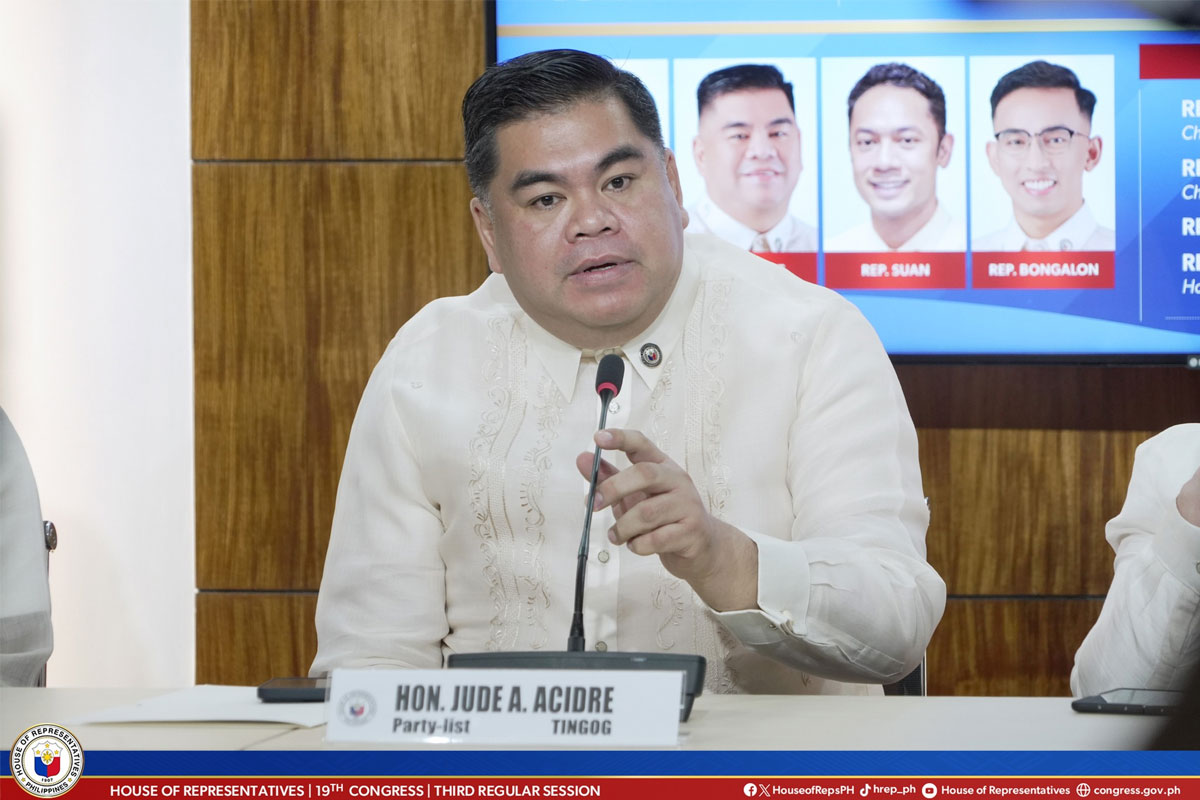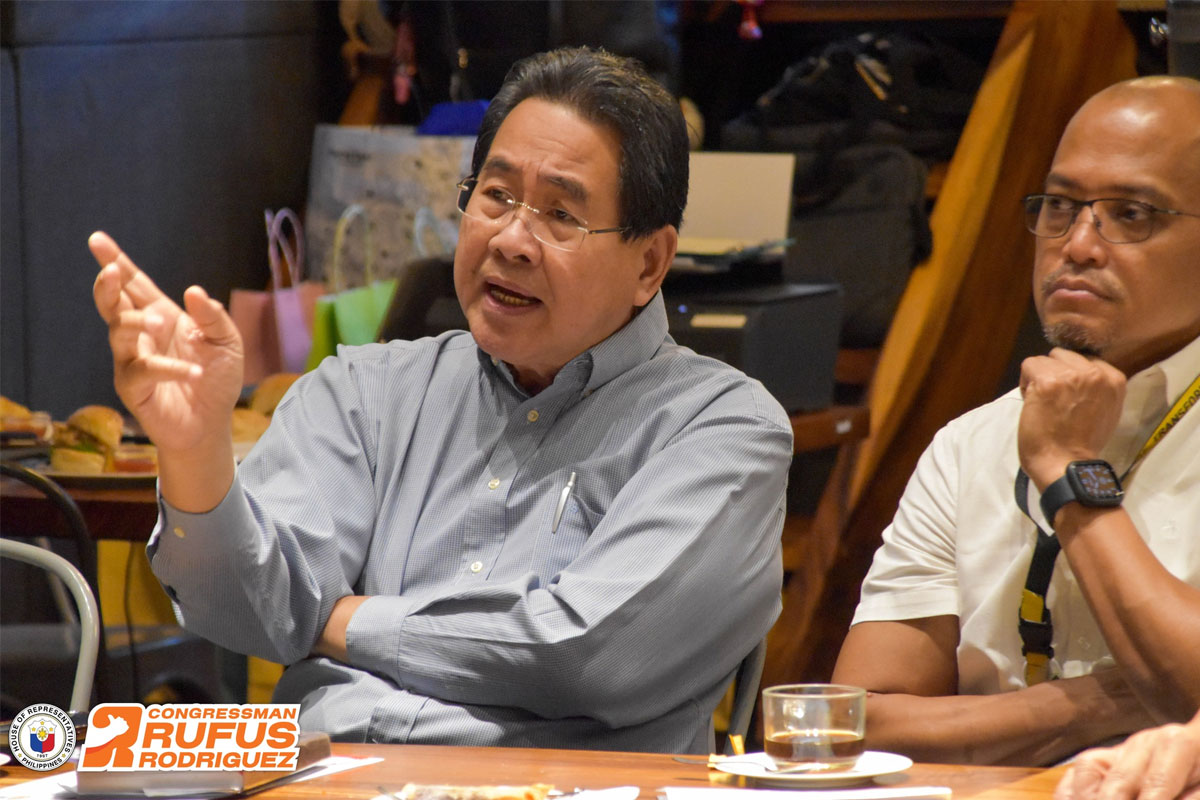
DBM submits proposed P5.2T nat’l budget
THE Department of Budget and Management (DBM) is set to submit today the proposed 2023 national budget amounting to P5.268 trillion.
The House of Representatives, under the leadership of Speaker Martin Romualdez is ready to accept it with assurance to the public that it will be scrutinized carefully and will be passed on time.
This is the first full budget of the administration of President Ferdinand “Bongbong” Marcos Jr.
DBM Secretary Amenah Pangandaman will be leading the economic team in submitting the first National Expenditure Program (NEP), the executive department’s version of the national budget, of Marcos regime.
Joining Speaker Romualdez to receive the NEP are Majority Leader Manuel Jose “Mannix” Dalipe, Minority Leader Marcelino Libanan, House Committee on Appropriations chairman and Ako
Bicol Party-list Rep. Zaldy Co and his senior vice chairperson, Marikina City Rep. Stella Luz A. Quimbo.
The turnover ceremony will be held at 10 a.m. at the social hall of the Speaker’s Office.
Under the Constitution, the President “shall submit to the Congress within 30 days from the opening of every regular session, as the basis of the general appropriations bill (GAB), a budget of expenditures and sources of financing, including receipts from existing and proposed revenue measures.”
Part of the President’s submissions is his budget message to lawmakers and the nation.
The budget and its accompanying documents are submitted to the larger chamber of Congress because the Constitution provides that “all appropriation, revenue or tariff bills, bills authorizing increase of the public debt, bills of local application, and private bills shall originate exclusively in the House of Representatives, but the Senate may propose or concur with amendments.”
However, the Palace has traditionally been furnishing the Senate copies of its budget submissions on the day that it presents them to the House.
The proposed budget for next year is P244 billion or almost five percent more than this year’s P5.024-trillion outlay. It will be the highest ever spending proposal of the government.
House leaders have vowed to finish committee and plenary deliberations on the budget proposal before October 1, when Congress is scheduled to go on its first recess that will last up to November 6.
“The budget process starts here and we want to give all House members time to scrutinize the proposed budget. I can confidently say that we can make the September 30 deadline,” he said.
The appropriations committee will begin hearings on the NEP on August 26 with a briefing by the Marcos administration’s economic managers on the macro-economic parameters used in putting the spending proposal together.
Pass through the needle eye
On the part of the Minority bloc, House Deputy Minority Leader Bernadette Herrera said that the proposed national budget for 2023 will be thoroughly reviewed by minority lawmakers.
“Basta po sa amin sa minority ina-assure po natin ang ating mga kababayan na dadaan sa butas ng karayom ito pong budget na ito. Bubusisiin po namin,” Herrera said.
The House leadership aims to pass the 2023 national budget “in less than 30 working days”—from the time it is submitted to Congress until it hurdles third and final reading in plenary.
Given the time constraints, Herrera appealed to the majority to give every member of the minority the opportunity to ask questions to the heads of government agencies pertaining to their respective budget proposals and other related issues.
“Kaya sabi po namin sa majority: ‘kayo ang mag-adjust sa minority dahil ilan lang naman kami.’ Bigyan kami ng pagkakataon na itanong lahat ng dapat naming itanong,” Herrera said.
Herrera said House Minority Leader Marcelino Libanan will assign each minority lawmaker to a task that they will perform during the budget hearings.
The veteran partylist lawmaker said the agency’s absorptive capacity is “very important and critical” in the budget process.
Income from GOCCs can double indigent seniors’ pension — solon
A lawmaker is urging the national government to tap government-owned or-controlled corporations (GOCCs) to fund the additional pension for the senior citizens.
According to Surigao del Sur Rep. Johnny Pimentel, the national treasury can use the funds generated by GOCCs for the 1,000 pension for the indigent seniors.
“The country’s economic recovery is on track, so we are counting on GOCCs to generate higher profits and pay out more cash dividends. The money can be used to bankroll the pension increase,” Pimentel said.
In 2021 alone, Pimentel said, GOCCs remitted a combined P57.55 billion in cash dividends to state coffers.
Pimentel was responding to reports that the Department of Budget and Management is still looking for money to finance the twofold increase in the monthly pension of impoverished seniors to P1,000 from P500.
The raise is mandated by a bill that lapsed into law on July 30.
“If the government does not provide money for the pension increase, the incidence of hunger could worsen among the elderly who do not have any means of financial support,” Pimentel warned.
“Their current P500 monthly subsidy has been reduced into a pittance by rampant inflation,” Pimentel said.
Last week, Pimentel asked Malacañang to include in the proposed 2023 national budget the extra P25 billion needed for the Social Pension Program for Indigent Senior Citizens.
The program has P25 billion in funding this year to pay for the P500 monthly pension of 4.1 million indigent seniors identified by the Department of Social Welfare and Development.
It would need another P25 billion to double the pension rate to P1,000 for the same number of poor seniors.
GOCCs are mandated by Republic Act No. 7656 to declare as dividends and remit to the treasury at least 50 percent of their annual net profits, according to Pimentel.
“The same law also empowers Malacañang to adjust the dividend payout to any rate higher than 50 percent (of net profit) for all covered GOCCs,” Pimentel said.
Traditionally, the 15 biggest dividend payors among GOCCs are the Bangko Sentral ng Pilipinas; Philippine Deposit Insurance Corp.; Philippine Amusement and Gaming Corp.; Tourism
Infrastructure and Enterprise Zone Authority; Civil Aviation Authority of the Philippines; Manila International Airport Authority; Philippine Ports Authority; Philippine National Oil Co.;
Philippine Reclamation Authority; National Power Corp.; Philippine Charity Sweepstakes Office; PNOC Exploration Corp.; Philippine Economic Zone Authority; Bases Conversion and
Development Authority; and Clark Development Corp.










